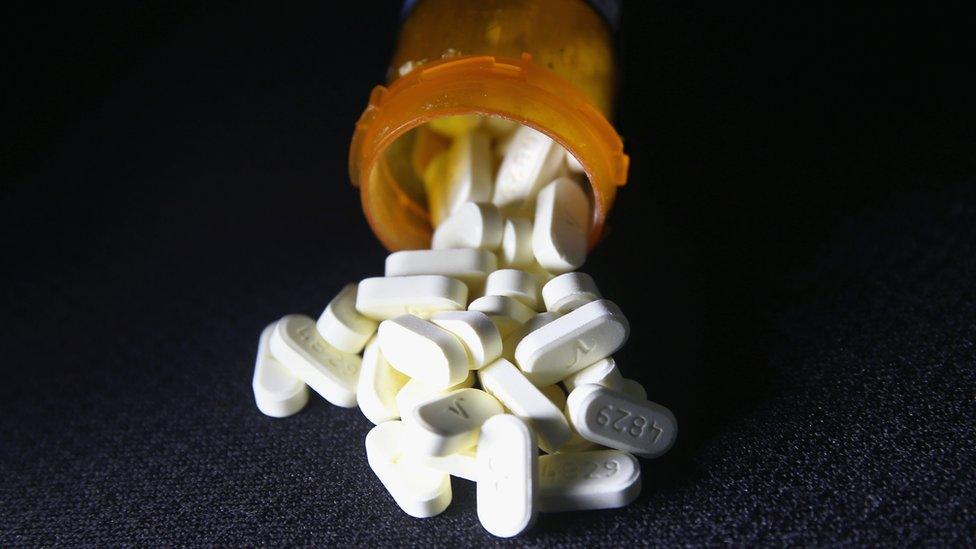Opioid epidemic: The other public health crisis killing Canadians
- Published
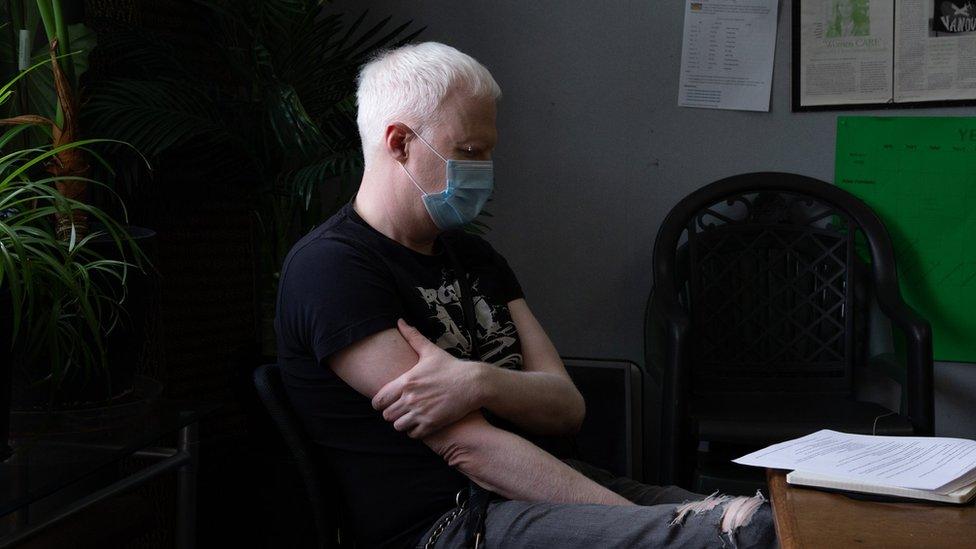
Garth Mullins, a former heroin user, is now an advocate for drug users in his home of Vancouver
Opioid deaths have been rising again in the shadow of the pandemic, notably in the Canadian province of British Columbia, where overdose casualties have reached historic highs. Is enough being done to end this second public health crisis?
Every month or so, Garth Mullins has breakfast with his best friend. They go to the same place - an aging diner in downtown Vancouver with chipped wooden booths and neon signs. They always end up there around 1pm, talking through bites of bacon, eggs and white toast.
"And I always think, 'Is this the last time I'm going to get bacon eggs with him?'" Mullins said.
Mullins was an injection heroin user for more than a decade, before moving to methadone. He is now a journalist and advocate for drug users and harm reduction policies in his home of Vancouver - at the centre of the overdose crisis in the province of British Columbia [BC].
When the coronavirus hit the province in March, one public health crisis collided with another, and overdose deaths began to climb. Two months later they reached all-time highs: 174 deaths in May, then 177 in June, 175 in July. So far this year, 909 people have died of an overdose in BC.
Deaths from illicit drugs continue to eclipse deaths from homicides, suicides, car crashes and Covid-19, combined.
It's led to Canada's chief public health official - and the face of the country's coronavirus response - to warn of this second health emergency.
"Canadians should be seized with this particular crisis," said Dr Theresa Tam last month. It is "escalating as we speak".
The record-breaking figures reversed a period of relative stability in the province's battle with opioid abuse.
In 2019, three years after the province declared the opioid epidemic a public health emergency, the number of drug deaths fell by more than a third from the year before - an encouraging trend that continued into the early months of 2020. Then the coronavirus hit.
Experts say the necessary response to the pandemic laid the foundation for a spike in overdose deaths.

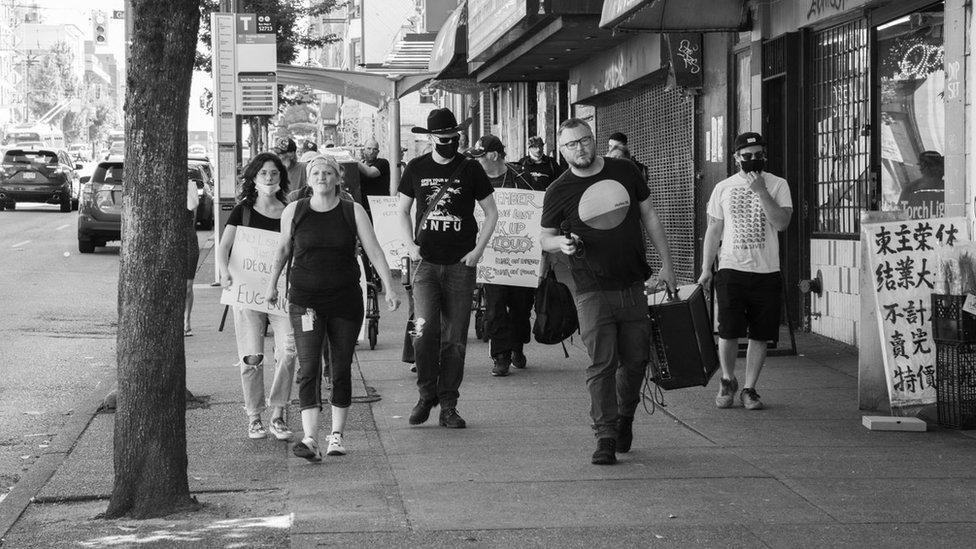
Mullins (centre) participates in a memorial last month for those who have died in recent months

First, there is the sheer toxicity of the drugs on the street, said Dr Jane Buxton, the medical lead for harm reduction at the British Columbia Centre for Disease Control.
Canada's border closure has disrupted the country's typical illicit drug supply chain, Dr Buxton said, leaving drugs more vulnerable to contamination as local dealers cut them with toxic additives to increase supply and lower costs.
A second factor is the clash in guidance between the two health emergencies.
Safety amid Covid-19 means social distancing and prolonged periods of isolation. Harm reduction for drug users means never using alone - and social distancing requirements have compelled some supervised consumption sites in Canada - where no overdose deaths have ever been recorded - to reduce capacity or shutter altogether.
And experts say some of the common side effects of the Covid-19 pandemic - anxiety, isolation and uncertainty - may drive people to use.
Mullins said Canada didn't have an effective plan to address the opioid crisis to begin with, a shortfall that has been compounded by Covid.
"Everything is so precarious that if any one thing goes wrong, the statistics will jump up."

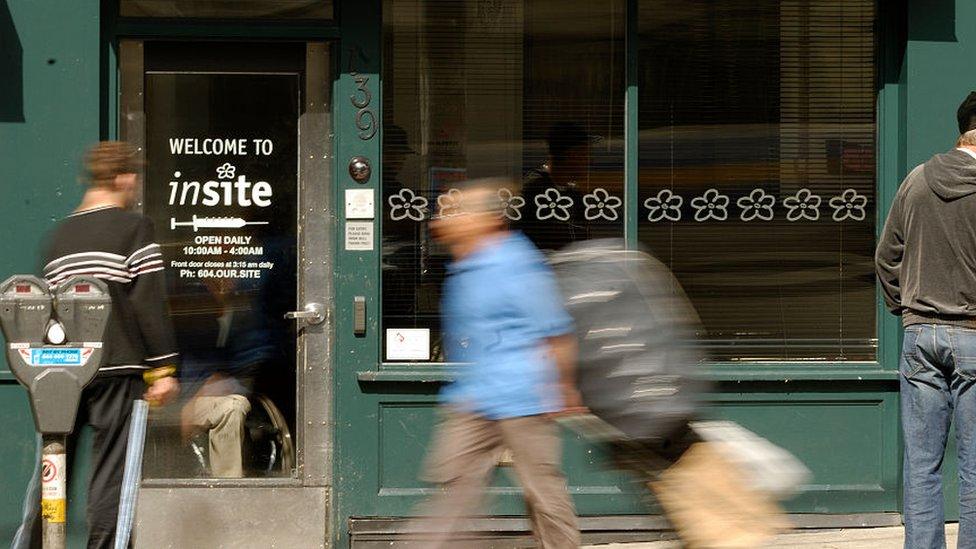
Some supervised consumption sites have been forced to shut during the pandemic. Vancouver's supervised injection site, Insite, was the first such site in North America

These same factors are at play in the US. In August, the American Medical Association reported increases in opioid-related deaths in more than 40 states.
In Canada, the crisis is most pronounced in BC. A few years ago, Mullins said, he tried to tally the number of people he had lost to an overdose. When he got to 50 he stopped counting.
"It's a terrible, morbid exercise," he said. Lately, the deaths feel like a "constant stream".
Last month, Mullins and other advocates in Vancouver gathered for a "mass memorial" and eulogies for some of those who have died in recent months.
"It's been a crisis for so long I feel like it's rewritten a part of my personality. You just expect this kind of loss," he said.

Advocates say the response to the coronavirus outbreak and the overdose crisis has exposed a gulf between the respective public and political attitudes.
Canada's "bold and urgent" response to Covid-19 has not been matched by that to the overdose crisis, said Leslie Mcbain, who lost her 25-year-old son Jordan in 2014 to a drug overdose after he was prescribed opioids for a back injury.
"It's the absolute worst thing that could happen to a family," she said. "You don't go through it, you carry it. We carry it forever."


In the wake of Jordan's death, Mcbain co-founded Moms Stop the Harm, a support group for families affected by substance use.
In August, both Mcbain and Mullins quit a provincial overdose response committee over what she described as governmental inaction.
"Nothing was happening," she said, just as "everything" was being done to protect the province from Covid-19.
"We realised we were at the kids' table," she said.
In July, BC Premier John Horgan apologised for remarks suggesting that, while Covid-19 "affects anyone at any time", the opioid crisis involves those who made an initial "choice" to use drugs.

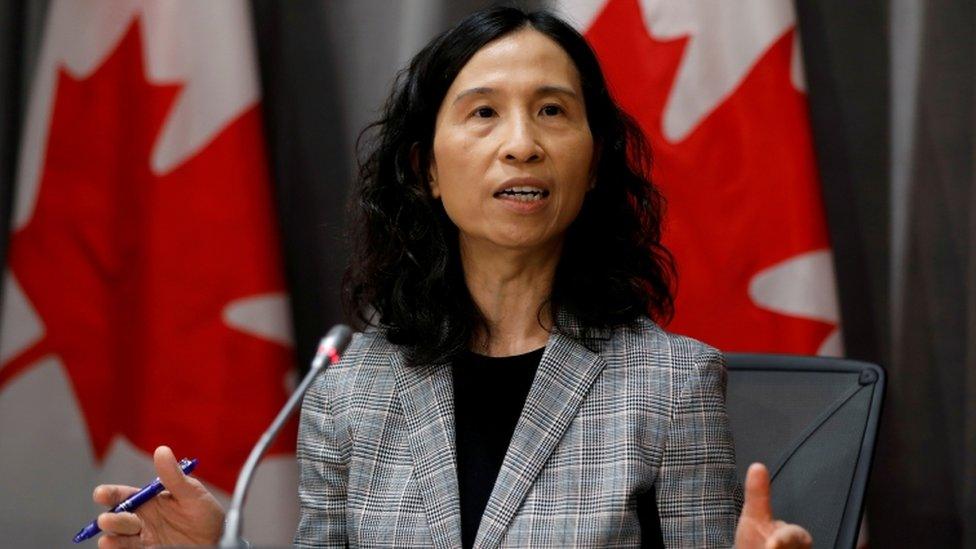
Chief Public Health Officer Theresa Tam says Canadians should be 'seized' by the opioid crisis

Critics say the premier's comments signal why the overdose crisis has not received the type of muscular response summoned for the coronavirus - that those dying of an overdose were "morally culpable".
"The wrong people are dying," Mullins said.
Among those struggling with addiction and those in the harm reduction community, the disparity seemed clear, according to Dr Buxton.
"There's a lot of discontent around how much time, energy and money is being spent on Covid," Dr Buxton said.
"There's also that feeling of despondency: 'We've been telling people this is an issue and nobody's been listening and then it's gotten worse. So what's being done about it?'"

Amid mounting deaths, authorities have suggested two principal solutions: decriminalising the possession of illicit substances and providing a safe supply of prescribed alternatives - pharmaceutical-grade medication as a substitutes to illegal drugs like heroin.
Both steps have been sought by advocates for decades.
In recent weeks, BC provincial health officer Dr Bonnie Henry, Premier Horgan, the Canadian Association of Chiefs of Police and health officers in Toronto and Montreal have all called on the federal government to decriminalise possession.
Dr Henry has joined BC's chief coroner Lisa Lapointe and Guy Felicella, a harm reduction campaigner and advisor with the BC Centre on Substance Use in advocating for prescribed alternatives.
"Access to a safer supply remains the number one, most urgently needed intervention to stop overdoses and stop people from dying," Felicella told reporters.
Early in the pandemic, the BC government announced new guidelines to allow more people - those at risk of Covid-19 infection, those with a history of ongoing substance abuse and those at high risk of withdrawal or overdose - to access prescription alternatives.
Nearly 2,000 people in the province can now use prescribed opioids.
But this figure is a "drop in the bucket" for a province with an estimated 55,000 to 100,000 illicit drug users, said Leslie Mcbain.
And much of the legal control of drugs in Canada rests with the federal government.

On America's trail of destruction

"Even when we have a supervised consumption site [in BC] we have to get an exemption," Dr Buxton said. "It's not as easy just to go in and say, 'OK we're going to change this in BC.' It all comes under the Controlled Drugs and Substances Act, which is the federal piece."
Asked about the surge in overdose deaths on Wednesday, Prime Minister Justin Trudeau said that there was not one "silver bullet" to address this crisis.
"We're prioritising the things that are going to make the biggest difference immediately," he told CBC News, and said that his government was "moving forward aggressively" on ensuring a safer supply.
In July, Health Canada department announced C$2m ($1.5m; £1.15m) in funding for a safe supply pilot project in BC's Cowichan Valley. Inside this roughly 84,000-person region, the program is reserved for those who have not responded to other treatments for opioid use disorder - about 25 people so far.
And the Canadian government is not currently considering the decriminalisation or legalisation of illegal drugs, Trudeau said on Wednesday.
For many advocates, including Garth Mullins, until both measures are mandated by the federal government, it won't be enough.
Unlike the virus outbreak, the spike in drug deaths in British Columbia was "entirely predictable", according to Mullins. Covid-19 was "a force of nature", he said. Canada's overdose crisis was "a force of policy".
- Published21 October 2019
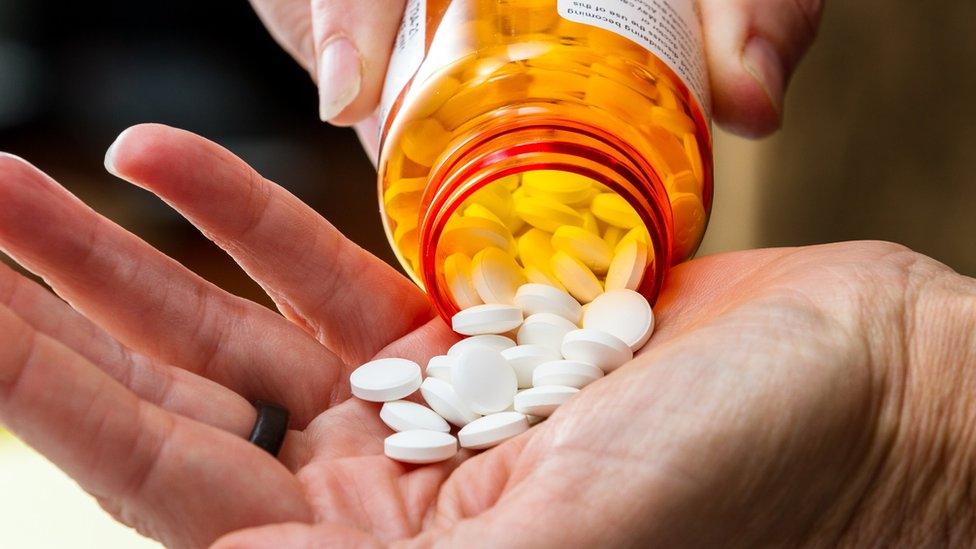
- Published21 July 2017
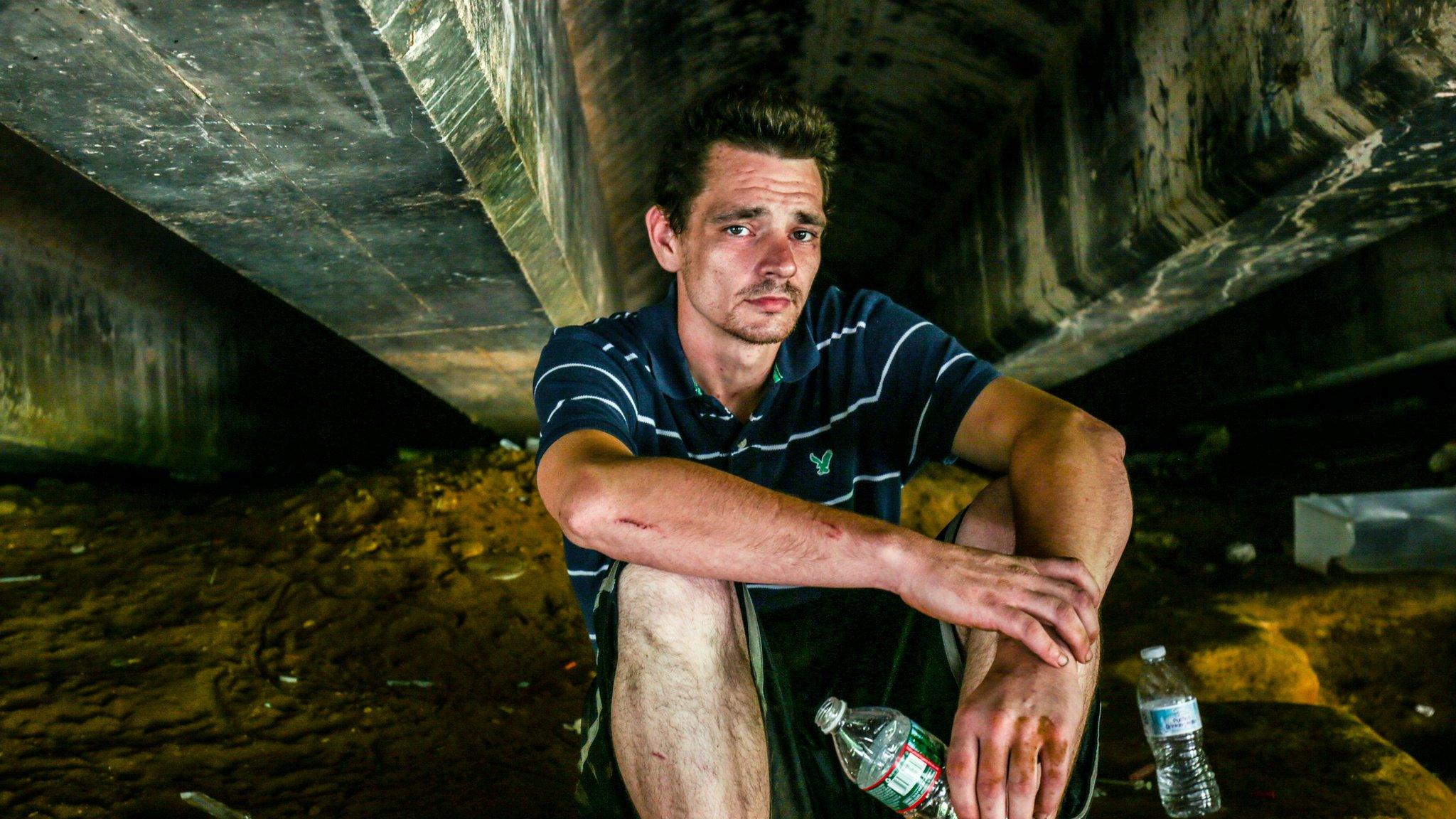
- Published28 February 2020
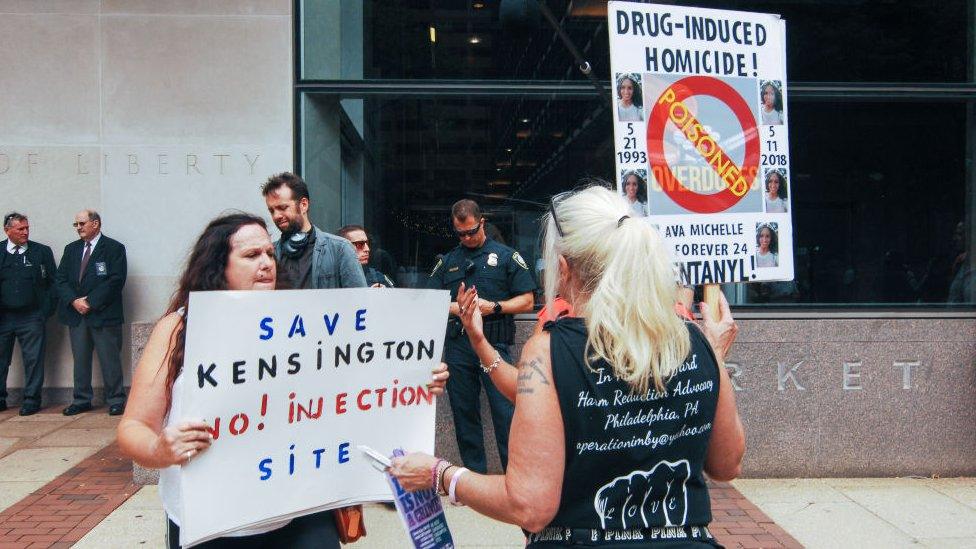
- Published4 January 2020
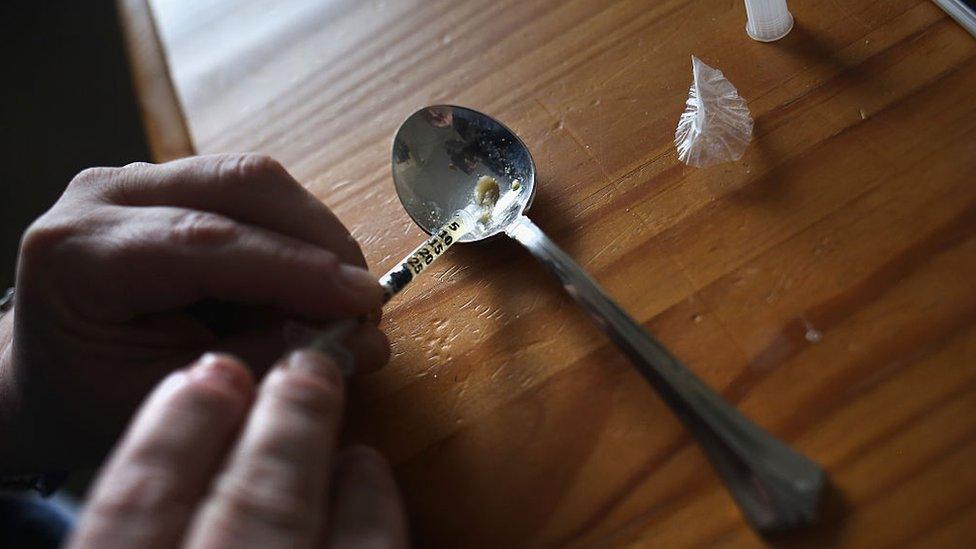
- Published17 July 2019
